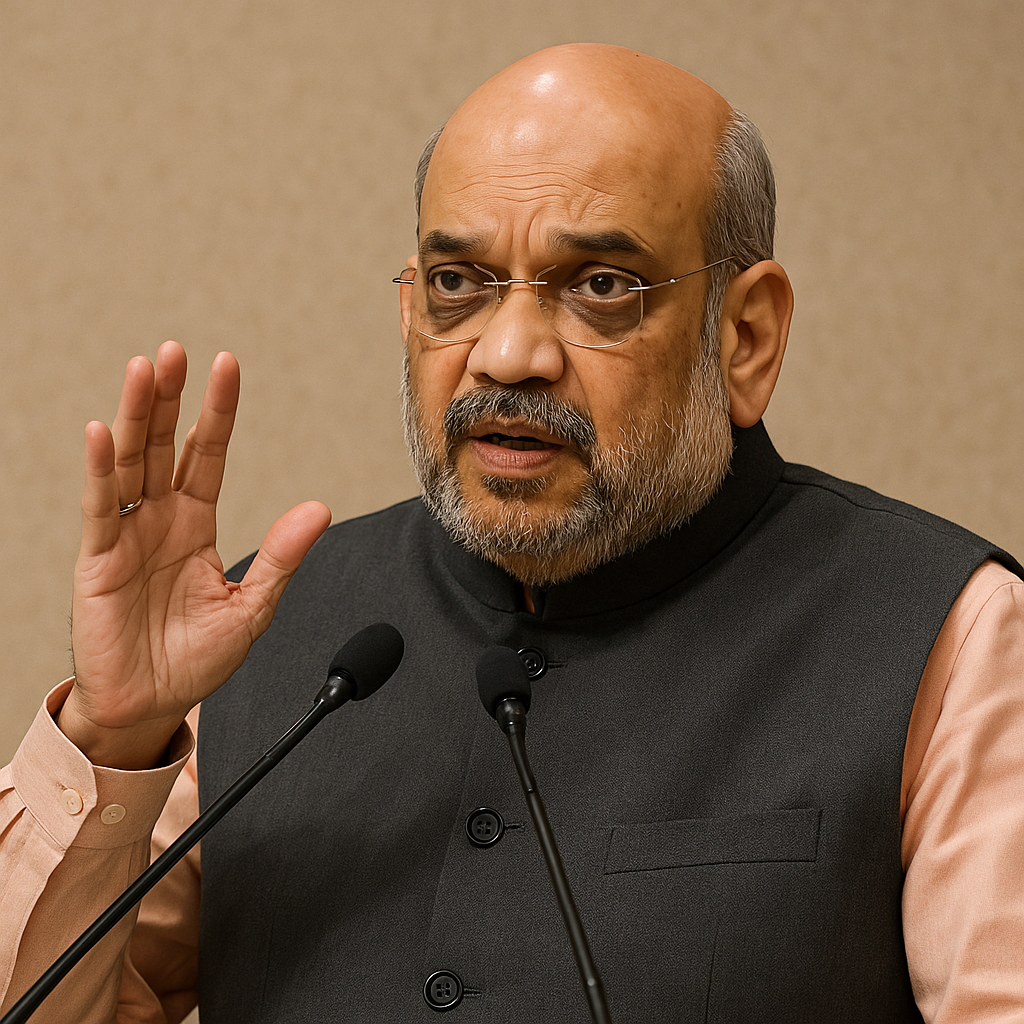President's Rule Imposed in Manipur Amid Ethnic Violence; Amit Shah Defends Decision
Turning to the specifics of the Manipur situation, Shri Shah detailed the roots of the violence, attributing it to ethnic tensions between the tribal and non-tribal communities in the state.

- Country:
- India
In a significant move, Union Home Minister and Minister of Cooperation, Shri Amit Shah, introduced a statutory resolution in the Rajya Sabha seeking approval for the imposition of President’s Rule in Manipur. The resolution was later adopted by the upper house, marking a pivotal moment in the state’s governance during an ongoing period of ethnic conflict.
Addressing the Rajya Sabha, Shri Amit Shah made it clear that the decision to implement President’s Rule was not a result of any no-confidence motion against the state government. He explained that the opposition parties did not possess enough members to propose such a motion. Shah highlighted that the Chief Minister of the state from his party resigned, prompting consultations with multiple political representatives. These included members from the Bharatiya Janata Party (BJP), National People’s Party (NPP), Naga People’s Front (NPF), Janata Dal (United), and even Congress. When a majority of these members expressed their inability to form a viable government, the state cabinet recommended the imposition of President's Rule, which was subsequently approved by the President of India.
Shri Amit Shah clarified that President's Rule was imposed on February 13, 2025, and emphasized that, despite the political upheaval, there had been no incidents of violence in Manipur since December 2024. He urged members not to fall victim to misleading narratives regarding the situation, as there was no ongoing violence to justify panic.
Drawing a historical comparison, Shri Shah pointed out that the situation in Manipur had been markedly different seven years ago when the opposition government was in power. During that time, the state suffered from widespread strikes, blockades, and curfews, which occurred on an average of 200 days a year. More than 1,000 people lost their lives in encounters. Shah also mentioned that, unlike the current situation, the then Prime Minister had not visited the state during these turbulent years.
The Home Minister made a key distinction between ethnic violence and Naxalism, stressing that the two require different approaches. Ethnic violence, he argued, occurs between two communities and should be addressed with a more sensitive approach than Naxalism, which involves armed insurgents fighting against the government. He criticized the opposition for failing to distinguish between these forms of violence and urged them to refrain from politicizing the issue. Citing incidents in Bengal, where women in areas such as Sandeshkhali had faced mistreatment for decades, Shah condemned the opposition for turning a blind eye to such issues.
Shri Shah also referenced the 260 deaths resulting from the ethnic violence in Manipur, with 70 percent of those deaths occurring within the first 15 days of the conflict. He reminded the House that this was not the first instance of ethnic violence in Manipur. He recalled the Naga-Kuki conflict between 1993 and 1998, which led to 750 deaths, and other violent incidents, including the Kuki-Paite conflict of 1997-98, which resulted in significant destruction and displacement. Despite the severity of these conflicts, Shah noted that the then Prime Minister did not visit the state, and no significant action was taken by the opposition.
Further emphasizing the Modi government’s record on Northeast India, Shri Shah pointed out the sharp decline in violent incidents under the current administration. Between 2004 and 2014, the Northeast saw 11,327 violent incidents, whereas, under the leadership of Prime Minister Modi, the number had decreased by 70 percent, dropping to 3,428. Additionally, deaths of security forces had dropped by 70 percent, and civilian casualties had reduced by 85 percent. Shah credited these improvements to the Modi government's successful peace initiatives in the region, including signing 20 peace agreements and facilitating the surrender of over 10,000 youths who embraced peace.
Turning to the specifics of the Manipur situation, Shri Shah detailed the roots of the violence, attributing it to ethnic tensions between the tribal and non-tribal communities in the state. He pointed out that these tensions were sparked by a controversial decision from the Manipur High Court, which was later stayed by the Supreme Court. The violence that followed, according to Shah, was not an issue of terrorism or religious conflict but a consequence of rising insecurities between the two communities.
To alleviate these tensions, the Union Home Minister assured the Rajya Sabha that multiple meetings had already been held between representatives of the two communities, including two held during the ongoing session of Parliament. He confirmed that another meeting was expected to take place soon in New Delhi. Shah expressed confidence that both communities would eventually find common ground and choose dialogue over violence.
Lastly, Shah reaffirmed that the imposition of President's Rule was not a move to save any political figure but a necessary step to bring peace and stability to the state. He assured the House that as soon as the situation in Manipur returns to normal, the President's Rule will be lifted, as it is not the long-term policy of the government to maintain such a regime. The Union Home Minister concluded by emphasizing that the government’s priority was the restoration of peace, and once that is achieved, governance will return to the people of Manipur.
- READ MORE ON:
- Amit Shah
- Manipur
- Rajya Sabha










